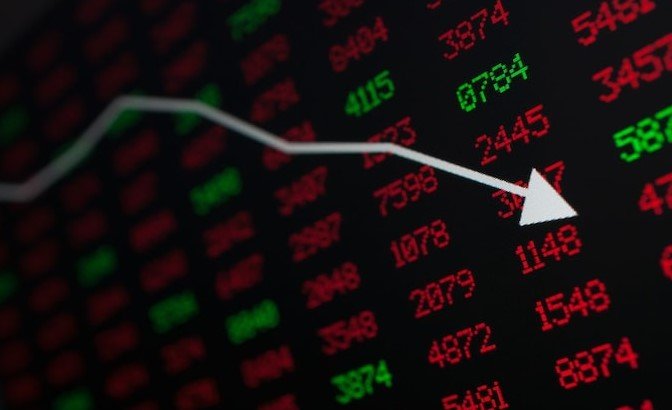Global Factors Weigh on Indian Markets
The benchmark equity indices began the trading session on a weak note, following a special trading session on Saturday due to the Union Budget presentation. As the markets opened on Monday, investor sentiment was notably affected by a combination of factors—chiefly, Trump’s new tariff measures, which rekindled fears of escalating global trade tensions. These developments have been met with a great deal of apprehension, as investors worry about the ripple effect on the global economy, especially amid the ongoing uncertainty.
The BSE Sensex plunged 731.91 points, or 0.94%, to hit an intraday low of 76,774.05, while the broader NSE Nifty fell 243 points, or 1.03%, to 23,239.15, breaching the key 23,300 level. These steep drops have led to a loss in market valuation, with over Rs 5 lakh crore wiped off from the equity markets in the early hours of trading.

Escalating Trade Tensions and Its Impact
Trump’s announcement of additional tariffs, along with concerns of retaliatory measures from other nations, have weighed heavily on investor confidence. These tariff measures have stoked fears of a prolonged trade war, one that could slow down economic growth and impact markets worldwide. As a result, foreign institutional investors have been cautious, pulling back from the Indian markets, further intensifying the downward pressure.
The global economic backdrop is already fragile, with slower growth and inflation concerns affecting developed and emerging markets alike. The latest tariff measures have only added fuel to the fire, sparking fears that the situation could escalate into a full-blown trade crisis.
- Sensex drops over 700 points
- Nifty breaches 23,300 level
- Global trade tensions intensify
- Over Rs 5 lakh crore erased from market valuation
Currency and Domestic Concerns Add to the Pressure
The Indian Rupee (INR) also took a hit, weakening against the US Dollar, adding to the market’s woes. A weaker currency increases the cost of imports and can fuel inflation, making it harder for companies to manage their foreign currency-denominated debt. This puts additional pressure on the markets, as inflationary pressures could harm both consumer demand and corporate profitability in the coming months.
Further compounding the situation are concerns over the Indian government’s fiscal policies. Despite the Union Budget’s focus on certain stimulus measures, markets have been cautious, wary of the government’s ability to achieve its fiscal targets while navigating global and domestic economic challenges. Traders are watching for any signs of effective government spending, but so far, the outlook remains uncertain.
Market Outlook Amid the Volatility
The immediate outlook for Indian markets remains bleak, with analysts suggesting that more volatility could be on the horizon. Investors are expected to remain on edge, with geopolitical factors and domestic policies continuing to drive sentiment.
As markets recover from the initial shock, experts will be closely watching how global trade relations evolve, especially between the U.S. and its trading partners. Additionally, the strength of the Indian economy and its capacity to withstand external shocks will play a crucial role in determining the market’s direction in the near future.
